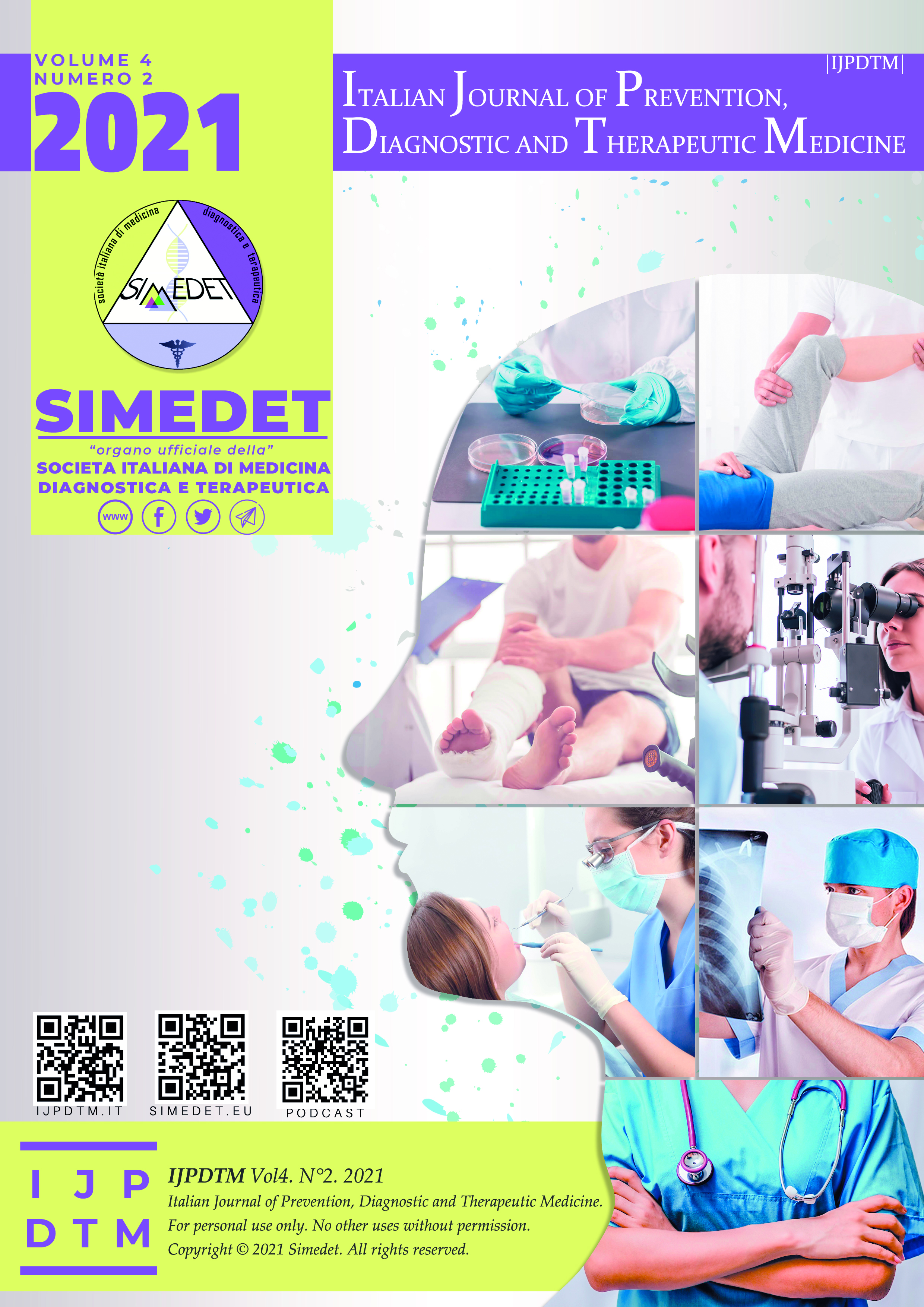La comunicazione in Medicina i Podcast SIMEDET
Contenuto principale dell'articolo
Abstract
La tecnologia sta modificando il modo in cui comunichiamo, impariamo e ricordiamo le informazioni. I podcast sono uno strumento innovativo nella formazione medica e si fondano sul microlearning, una metodologia didattica veloce che offre microcontenuti, caratterizzati da brevità e chiarezza, che possono essere assimilati velocemente. La SIMEDET ha pubblicato 86 podcast su argomenti di Semeiotica, Clinica Medica, Farmacologia, Tecnologia e Igiene, consultabili gratuitamente nel sito www.simedet.eu, dedicati agli studenti di discipline biomediche.
Downloads
Dettagli dell'articolo

Questo lavoro è fornito con la licenza Creative Commons Attribuzione - Non commerciale - Non opere derivate 4.0 Internazionale.
Riferimenti bibliografici
Cooper WO, Hickson GB. Building an infrastructure to support professionalism in the modern era: the required elements (people, process, technology). In: Byyny RL, Paauw DS, Papadakis M, Pfeil S, editors. Medical Professionalism Best Practices: Professionalism in the Modern Era. Aurora, CO: Alpha Omega Alpha Honor Medical Society; 2017:73-84.
http://www.americandialect.org/Words_of_the_Year_2005.pdf
https://www.theguardian.com/media/2004/feb/12/broadcasting.digitalmedia
https://www.illibraio.it/wp-content/uploads/2020/11/Ricerca-Podcast-Nielsen-per-Audible.pdf
Hug T. Mobile learning as 'microlearning': conceptual considerations towards enhancements of didactic thinking. In: Parsons D, editor. Refining Current Practices in Mobile and Blended Learning: New Applications. Hershey, Pennsylvania: IGI Global; 2012:41-52.
Torgerson C. The Microlearning Guide to Microlearning. North Carolina: Torgerson Consulting; 2016.
Cosnefroy L, Carré P. Self-regulated and self-directed learning: why don't some neighbors communicate? Int J Self Direct Learn 2014;11(2):1-12
Bell F. Network Theories for Technology-Enabled Learning and Social Change: Connectivism and Actor Network Theory. In: Proceedings of the Seventh International Conference on Networked Learning. 2010 Presented at: NLC'10; May 3-4, 2010; Aalborg, Denmark p. 3-4.
Hug T, editor. Didactics of Microlearning: Concepts, Discourses and Examples. Münster, Germany: Waxmann; 2007.
Evans, C. (2008). The effectiveness of m-learning in the form of podcast revision lectures in higher education. Computers & Education, 50(2), 491-498.
O’Bannon, B. W., Lubke, J. K., Beard, J. L., Britt, V. G. (2011). Using podcasts to replace lecture: Effects on student achievement. Computers & Education, 57(3), 1885-1892.
Van Zanten, R., Somogyi, S., Curro, G. (2012). Purpose and preference in educational podcasting. British Journal of Educational Technology, 43(1), 130-138.
Lonn, S., Teasley, S. D. (2009). Podcasting in higher education: What are the implications for teaching and learning? The Internet and Higher Education, 12, 88-92.
Pons, D., Walker, L., Hollis, J., Thomas, H. (2013). Evaluation of student engagement with a lecture capture system. Journal of Adult Learning, 40, 79-91.
Copley, J. (2007). Audio and video podcasts of lectures for campus based students:Production and evaluation of student use. Innovations in Education and Teaching International, 44(4), 387-399.
Vajoczki, S., Watt, S., Marquis, N., Holshausen, K. (2010). Podcasts: Are they
an effective tool to enhance student learning? A case study from McMasters University, Hamilton Canada. Journal of Educational Multimedia and Hypermedia, 19, 349-352.

